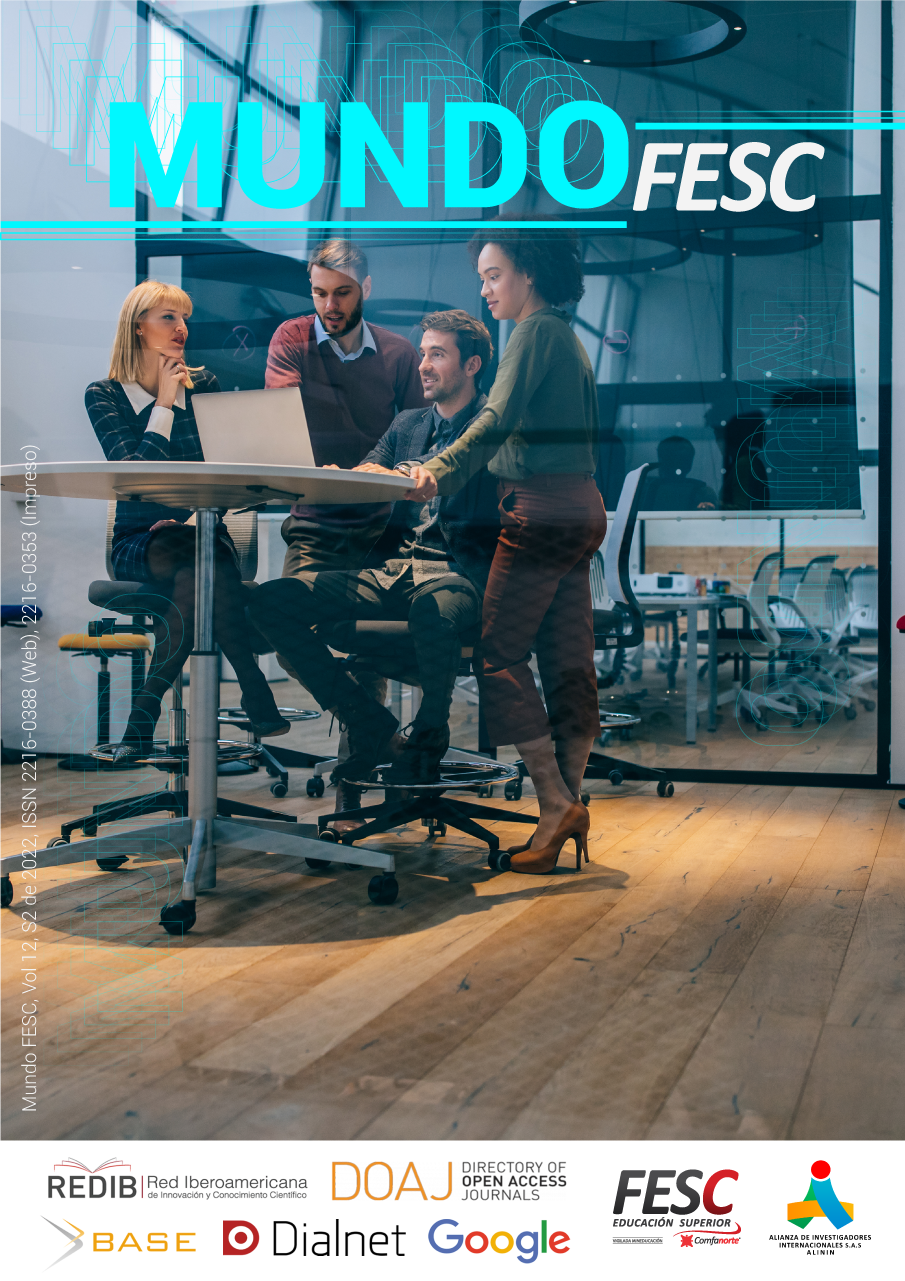Planning from the people. A vision of increasing complexity
Keywords:
Complexity, Dialogue, People, Participation, PlanningAbstract
The purpose of this article focused on analyzing the theoretical and epistemological foundations of planning from the people, considering the growing complexity of the environment. It was based on the thesis that planning implies two important conjunctions: on the one hand, planning with the people by involving citizen participation, dialogue and commitment of the intervening actors as guiding principles of the plan; on the other hand, planning from the people, which represents a change in the directionality of planning processes, i.e., preferring horizontality and relational transversality to verticality. The research was approached with a qualitative approach and hermeneutics as a method of understanding to establish the epistemic sense of planning from 3 key informants who constituted the unit of analysis of the study. The results obtained indicate that planning with and from the people is a participatory process, emerging from reality, which assumes dialogue as communication mechanisms to achieve citizen participation in decision making, design and execution of the plan, in order to manage the growing complexity and generate collective actions that favor development. It is concluded that the task of this new planning encompasses understanding, managing and controlling; assuming controlling as a capacity and disposition of the individuals who participate in planning.
Downloads
References
F. Taylor, H. Fayol, y A. Del Camino, Principios de la administración científica. Editorial Herrero Hermanos; México, 1961
H. Fayol, Administración industrial y general. Editorial Herrero Hermanos Sucesores; México, 1961
E. Mayo, The social problems of industrial civilization. Roultledge and Kegan Paul. UK, 1949
J. Etkin, “Poder político y gobernabilidad en organizaciones complejas”, Tesis Doctoral, Universidad de Buenos Aires, 2017. https://books.google.es/books?hl=es&lr=&id=oeD4DwAAQBAJ&oi=fnd&pg=PT15&dq=jorge+etkin+organizaciones+como+sistemas+complejos&ots=2M_rnYrVAP&sig=1vnLTOBof2o6Y3Dif4D2iHVugjU#v=onepage&q=jorge%20etkin%20organizaciones%20como%20sistemas%20complejos&f=false
E. Herrscher, Planeamiento sistémico: un enfoque estratégico en la turbulencia. Argentina: Ediciones Granica, 2008
C. Maldonado, “Tres razones de la metamorfosis de las ciencias sociales en el siglo XXI”, Cinta de moebio, (64), 114-122, 2019. [En línea]. Disponible en: “doi: 10.4067/S0717-554X2019000100114”.
J. Etkin, Capital social y valores en la organización sustentable: El debe ser, poder hacer y la voluntad creativa, Argentina: Ediciones Granica, 2014
R. Utría, El desarrollo de las naciones. Hacia un nuevo paradigma, Bogotá: Alfaomega. Sociedad Colombiana de Economistas, 2002
J. López, Planificación y gestión pública, Caracas, Universidad Central de Venezuela; CENDES, 2007
J. López y S. García, El juego de cambiar el juego. Pensar el cambio en ambiente sociales complejos, Caracas, Universidad Central de Venezuela; CENDES, 2011
H. castellano, La planificación del desarrollo sostenible, Editorial Melvin. C.A. Caracas, Universidad Central de Venezuela, CENDES. 2006
J. Habermas, Teoría de la acción comunicativa. Volumen 1: Racionalidad de la acción y racionalización social, Madrid, Taurus, 2002
H. Gadamer, Verdad y método I. 005, Salamanca: Ediciones Sígueme. 1998
I. Prigogine e I. Stengers, La nueva alianza. Metamorfosis de la ciencia, Madrid: Alianza editorial, 2002
K. Derbal, y A. Tachrift., “La participación ciudadana en la planificación local y urbana en Argelia”, Estudios Demográficos y Urbanos. 37(1), pp. 121 a 157, 2022. [En línea]. Disponible en: “doi.org/10.24201/edu.v37i1.1966”
S. Marion., B. Jacques y D. Jean-Claude, Dictionnaire critique de l’habitat et du logement, París: Armand Colin, 2002
A. Bay. y R. Houchet, “The participatory approach as a tool to stimulate local development in Algeria”, Algerian Magazine of Security and Development, vol. 6, no. 1, pp. 269-281, 2017
J, López, “Planificación, cambio y desarrollo en ambiente sociales democráticos y complejos”, Cuadernos del Cendes. 36(101), pp. 1 a 23, 2019
C. Maldonado. y N, Gómez, El mundo de las ciencias de la complejidad, Colección Complejidad. Bogotá: Editorial Universidad del Rosario, 2011
N. Denisse, Mirar con nuevos ojos. Nuevos paradigmas en la ciencia y pensamiento complejo, Argentina: Editorial Biblos, 2008
N. Denzin e Y, Lincoln, El campo de la investigación cualitativa: Manual de investigación cualitativa, Vol. I; España Barcelona: Editorial Gedisa, 2012
R. Hernández y C. Torres, Metodología de la investigación, México ed. F DF: McGraw-Hill Interamericana, 2018
Downloads
Published
How to Cite
Issue
Section
License

This work is licensed under a Creative Commons Attribution-NonCommercial 4.0 International License.




